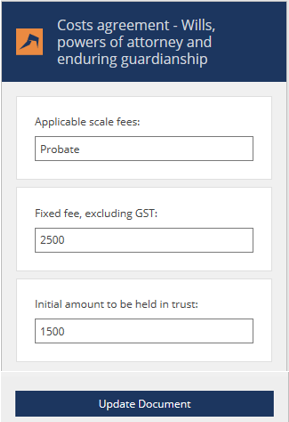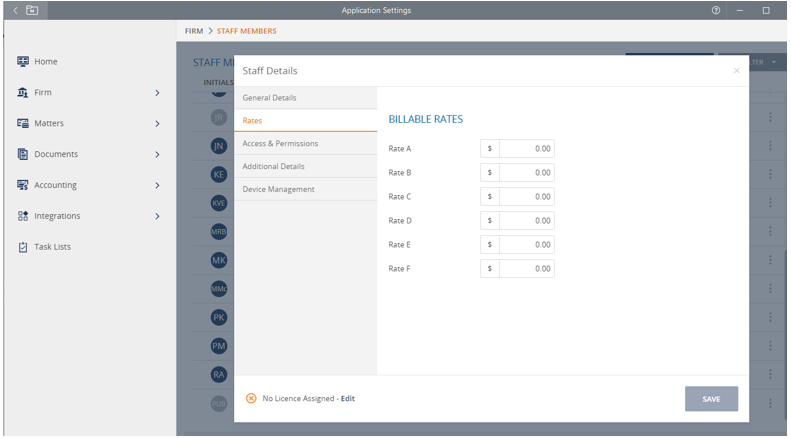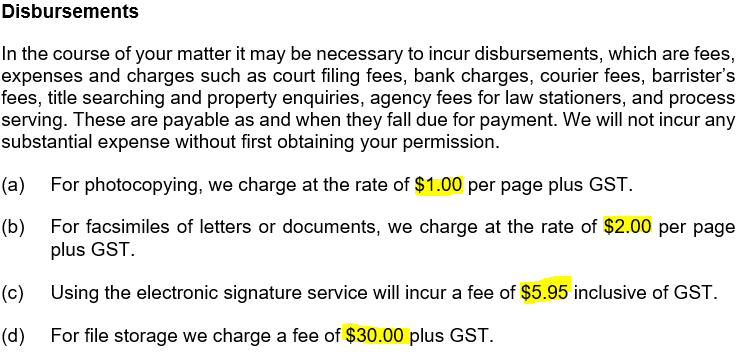Abbreviated costs disclosure is available to Queensland law firms from 1 March 2024.
A new section 307B of the Legal Profession Act 2007 (QLD) provides for a simpler form of disclosure where legal costs in a matter, excluding GST and disbursements, are not likely to exceed the detailed disclosure threshold set out in s 300, which is currently $3,000.
This new form of disclosure is available as an alternative to the detailed disclosure requirements under s 308 of the Act.
Under s 307B, a law practice is required to disclose to the client:
- in general terms, the legal services that will be provided to the client;
- the basis on which legal costs will be calculated, including whether a scale of costs applies;
- an estimate of the total amount of the legal costs;
- an estimate of the total amount of disbursements; and
- the client’s right to:
- negotiate a costs agreement with the law practice;
- receive a bill from the law practice;
- request an itemised bill after receiving a lump sum bill; and
- be notified of any substantial change to the matters disclosed under s 307B.
All By Lawyers Queensland and Federal publications have been updated with a compliant abbreviated costs disclosure precedent.
By Lawyers 101 Costs Answers guide has been updated to include commentary on the new abbreviated costs disclosure requirements.








